Meeting Up in Farsi

One of the best ways to immerse yourself in the culture of any country you are visiting is to make friends with locals, attend their gatherings, and hang around or travel with them. In Iran, Afghanistan, and Tajikistan, it is not difficult to befriend locals because people in these countries are usually very hospitable and helpful. However, to arrange a meeting up in Farsi and set a date with Persian speakers you need to speak Persian most of the time. As always, we are here to help you with useful phrases and cultural notes. Let’s read some interesting and fruitful facts about meeting up in Iran and then go to the language part.
Planning
The very first thing you need to know is that Iranians are not into planning. Most of the people decide to go on a one-week trip a day before they set off. But if you are invited to go somewhere without planning, do not hesitate to join. You may face many challenges in finding a residency and an open restaurant or you may get stuck in rain without being prepared for that. But most of the time, your hosts will find a way to solve these problems and make the trip pleasant for you.
Picnicking
You also need to get familiar with picnicking. For most of the Iranians, this term means going to the closest park, sitting on the grass, and making lots of “jujeh kabâb”, grilled chicken, while smoking hubble-bubble (hookah). In spring and summer, this “nature-friendly activity” may start at 10 p.m. and continue to 2-3 a.m. So, our advice is to check with your host to find out what s/he means by inviting you to a picnic.
I’ll do my Best!
When you invite people to join you for a party or mountain climbing or even a walk by the seaside, they sometimes tell you “sa’y mikonam biyâm” or “behet xabar midam” which mean “I’ll do my best” and “I’ll let you know” respectively. However, you’d better not wait for their call because what we infer, as Iranians, from these phrases is “I am not coming”. But as a non-Iranian, try to be precise and clear because you are not familiar with cultural context and what we call “tâ’rof” or “politeness formulas”. Moreover, Iranians expect you to be more direct because you are not Iranians after all.
If you decide not to go where you are invited, you’d better give a short explanation for your declination such as being busy or planning for something else. But make sure to say “išâlâ daf’e-ye ba’d”, hopefully, next time, to complete your act of politeness.
Cancelling
One of the surprises of meeting-ups in Iran is the last-minute cancelation, or even worse, not showing up. Even for Iranians, it is not considered polite and acceptable but it may happen. It is usually very annoying, but do you know any culture without any weak points? Try to get used to it and enjoy the other bright sides of being in Iran.
Another Tarof
If you are invited to join a friend for a party or go to the cinema, etc. but you cannot go, you can always follow up by asking how the party, camping, or the movie was. You may usually hear “jâ-ye šomâ xâli” which will be meaningless if you translate it word by word. It is just another Iranian “tâ’orof” which is somehow an equivalent for “you were missed” or “it was a pity you couldn’t join us”. In response, you can say “dustân be jâ-ye mâ”, which means I am happy that my friends enjoyed the activity.
In case you are interested in learning more about Iranian “tâ’rof” culture, you can go can take a glance at cultural notes.
Meeting Up Vocabulary in Farsi
| English | Pronunciation | Farsi | |
|---|---|---|---|
| meeting | qarâr | قَرار | |
| plan | barnâme(h) | بَرنامه | |
| invitation | invitation | دَعوَت | |
| arrangement | hamâhangi | هَماهَنگی | |
| weekend | âxar-e hafte(h) | آخرِ هَفته | |
| this evening | emruz ‘asr | اِمروز عًصر | |
| tonight | emšab | اِمشَب | |
| holidays | ta’tilât | تَعطیلات | |
| free | âzâd | آزاد | |
| where | kojâ | کُجا | |
| which day | če(h) ruzi? | چه روزی؟ | |
| what time? | sâ’at-e čand? | ساعَتِ چَند؟ |
Meeting Up Useful Verbs in Farsi
| English | Pronunciation | Farsi | |
|---|---|---|---|
| to set a date | qarâr gozâštan | قَرار گُذاشتَن | |
| to make an arrangement | hamâhang kardan | هَماهَنگ کَردَن | |
| to invite | da’vat kardan | دَعوَت کَردَن | |
| to have time | vaqt dâštan | وَقت داشتَن | |
| to be late | dir kardan | دیر کَردَن | |
| to arrive early | zud residan | زود رِسیدَن | |
| to let someone know | xabar dâdan | خَبَر دادَن | |
| to call | zang zadan | زَنگ زَدَن | |
| to accept | qabul kardan | قَبول کَردَن | |
| to be able to | tunestan | تونِستَن | |
| to pick someone up | donbal-e kasi raftan | دُنبالِ کَسی رَفتَن | |
| waiting for someone | montazer-e kasi budan | مُنتَظِرِ کَسی بودَن |
Inviting and Accepting in Farsi

– âxar-e hafte(h) vaqt dâri?
آخَرِ هَفته وَقت داری؟ –
– âre(h), četor?
آره چطور؟ –
– in âxar-e hafte(h) barnâme(h)-I dâri?
این آخَرِ هَفته بَرنامه داری؟ –
– na(h), barnâme(h)-ye xâsi nadâram
.نه، بَرنامه یِ خاصی نَدارَم –
– emšab âzâd hasti?
اِمشَب آزاد هَستی؟ –
– âre(h), kâri nadâram.
.آره، کاری نَدارَم –
– mixây emšab berim kâfe(h)?
می خوای اِمشَب بِریم کافه؟ –
– emšab ye(h) kam kâr dâram, ammâ fardâ šab âzâdam.
.اِمشَب یه کَم کار دارَم، اَمّا فَردا شَب آزادَم –
– fardâ šab ham xube(h), fardâ mibinamet.
.فَردا شَب هم خوبه، فَردا می بینَمِت –
– biyâ in âxar-e hafte(h) berim kuh, nazaret či-ye(h)?
بیا این آخَرِ هَفته بِریم کوه، نَظَرِت چیه؟ –
– âre(h), xeyli xube(h). kodum samt berim?
آره، خِیلی خوبه. کُدوم سَمت بِریم؟ –
– nazaret či-ye(h) barâ-ye ta’tilât berim esfehân?
نَظَرِت چیه بَرای تَعطیلات بِریم؟ –
– esfehân? movâfeqam, man tâ hâlâ esfehân naraftam.
.اِصفِهان؟ مُوافِقَم، من تا حالا اِصفِهان نَرَفتَم –
– emruz kâret sâ’at čand tamum miše(h)?
اِمروز کارِت ساعَتِ چَند تَموم می شه؟ –
– sâ’at-e šeš.
.ساعَتِ شِش –
– dust dâri ba’deš berim sinemâ?
دوست داری بَعدِش بِریم سینِما؟ –
– âre(h), ‘âli-ye(h).
.آره، عالیه –
– hoselam sar rafte(h).
.حُوصِله اَم سَر رَفته –
– mixây berim pârk?
می خوای بِریم پارک؟ –
– kodum pârk?
کُدوم پارک؟ –
– mitunim berim pârk mellat, xube(h)?
می تونیم بِریم پارکِ مِلَّت، خوبه؟ –
– are xube(h). ba’deš-am berim kâfe(h) yâs.
.آره خوبه، بَعدِشَم بِریم کافه یاس –
– ‘âli-ye qabule(h).
.عالیه، قَبوله –
– I’ll go to camping with my friends this week-end, wanna join?
– in âxar-e hafte(h) bâ dustâm mirim kamping, dust dâri biyây?
این آخَرِ هَفته با دوستام می ریم کَمپینگ، دوست داری بیای؟ –
– Sure, it’s a long time I haven’t been to.
– hatman, xeyli vaqte(h) ke naraftam.
.حَتماً، خِیلی وَقته که نَرَفتَم –
Setting Time and Meeting Point in Farsi

– sâ’at čand hamdiga-ro bebinim?
ساعَتِ چَند هَمدیگه رو بِبینیم؟ –
– sâ’at čâhâr xube?
ساعَتِ چهار خوبه؟ –
– âre(h), xube. kojâ bebinamet?
آره خوبه، کُجا بِبینَمِت؟ –
– dam-e pârk mibinamet.
.دَمِ پارک می بینَمِت –
– key râh miyoftim?
کِی راه می اُفتیم؟ –
– fekr konam se(h)-e sobh xub bâše(h).
.فِکر کُنَم سه ی صُبح خوب باشه –
– bâše(h), čizi lâzeme(h) biyâram?
باشه، چی لازِمه بیارَم؟ –
– na(h), faqat vasâyel-e šaxsi.
.نَه، فَقَط وَسایِلِ شَخصی –
– sâ’at čand barmigardim?
ساعَت چَند بَرمی گَردیم؟ –
– fekr konam tâ zohr xune(h) bâšim.
.فِکر کُنَم تا ظُهر خونه باشیم –
– fardâ sâ’at čâhâr-e sobh az meydun-e vanak harekat mikonim.
.فَردا ساعَتِ چهارِ صُبح اَز مِیدونِ وَنَک حَرِکَت می کُنیم –
– čâhâr xeyli zude(h).
.چهار خِیلی زوده –
– ammâ dirtar havâ garm miše(h).
.اَمّا دیرتر هَوا گَرم می شه –
– nemiše(h) sâ’at panj râh bioftim?
نِمی شه ساعَتِ پَنج راه بیُفتیم؟ –
– bâše(h), sâ’at panj. dir nakoni.
.باشه، ساعَتِ پَنج. دیر نَکُنی –
– sâ’at-e čand âmâde(h) miši?
ساعَتِ چَند آماده می شی؟ –
– man sâ’at yâzdah âmâdam.
.مَن ساعَتِ یازدَه آماده اَم –
– pas sâ’at yâzdah miyâm donbâlet.
.پَس ساعَتِ یازدَه می یام دُنبالِت –
– mersi, lotf mikoni.
.مِرسی، لُطف می کُنی –
– xaheš mikonam.
.خواهِش می کُنَم –
Declining an Invitation/ Meeting Up in Farsi
– xeyli delam mixâst biyâm, ammâ kâr dâram.
.خِیلی دِلَم می خواست بیام، اَمّا کار دارَم –
– bebaxšid amma emruz xeyli xaste(h)-am.
.بِبَخشید اَمّا خِیلی اِمروز خَسته اَم –
– ye(h) kam hâlam xub nist, saram dard mikone(h).
.یه کَم حالَم خوب نیست، سَرَم دَرد می کُنه –
– dust dâram biyâm amma emšab bâyad zud bexâbam.
.دوست دارَم بیام، اَمّا اِمشَب، بایَد زود بِخوابَم –
– mote’asefâne(h) in âxar-e hafte(h) saram šuluqe(h)
.مُتَاَسِّفانه این آخَرِ هَفته سَرَم شُلوغه –
– barâ-ye ta’tilât barnâme(h) rizi kardam.
.بَرای تَعطیلات بَرنامه ریزی کَردم –
– xeyli mamnun ke gofti, ammâ hafte(h)-ye dige emtehân dâram.
.خِیلی مَمنون که گُفتی، اَمَا هَفته یِ دیگه اِمتِحان دارَم –
– dust dâštam bebinamet ammâ in âxar-e hafte(h) mehmun dâram.
.دوست داشتَم بِبینَمِت، اَمّا این آخَرِ هَفته مِهمون دارَم –
– bebaxšid amma alân hosele(h)-ye mehmuni nadâram.
.بِبَخشید، اَمّا اَلان حوصِله یِ مِهمونی نَدارَم –
– omidvâram behetun xoš begzare(h), išâlâ daf’e-ye ba’d.
.اُمیدوارَم بِهِتون خوش بِگذَره، ایشالا دَفعه یِ بَعد –

Following up Later

– mehmuni četor bud?
مِهمونی چِطور بود؟ –
– It was great, you were missed. [3]
– xeyli xub bud, jây-e šomâ xâli.
.خِیلی خوب بود. جایِ شُما خالی –
– dustân be jây-e mâ.
.دوستان به جایِ ما –
– ta’tilât xoš gozašt?
تَعطیلات خُوش گُذَشت؟ –
– âre(h), xeyli xub bud, mersi.
.آره، خِیلی خوب بود. مِرسی –
– kamping bâ dustât xub bud?
کَمپینگ با دوستات خوب بود؟ –
– It was great, was a pity that you couldn’t come.
– ‘âli bud, heyf šod nayumadi.
.عالی بود، حِیف شُد نَیومَدی –
– išâlâ daf’e-ye ba’d.
.ایشالا دَفعه یِ بَعد –
Footnotes:
[1] This is a phrase to be said right after declining.
[2] Word by word translation is: the place for you was empty. It is a “tâ’rof” in Farsi. To learn more about “tâ’rof” click here.
[3] It’s an answer to “tâ’rof” which it’s literal translation is: our friends in our place. To learn more about “tâ’rof” click here


I am trying to learn what is being said from a Farsi speaking student. I write down the phonetic spelling but I am having a difficult time finding out what the words & phrases mean.
Salaam,
Thanks for your comment. Do you mean it is difficult for you to figure out what each word means in the phrases? I recommend going through vocabulary on different pages of the expression part on Farsimonde to expand your Persian Lexicon before starting to learn phrases. We will soon add an alphabet and grammar course to help Farsi learners read in Farsi and conjugate verbs. I hope this can make learning Persian easier for you.
Salaam,
Thanks for your comment. Do you mean it is difficult for you to figure out what each word means in the phrases? I recommend going through vocabulary on different pages of the expression part on Farsimonde to expand your Persian Lexicon before starting to learn phrases. We will soon add an alphabet and grammar course to help Farsi learners read in Farsi and conjugate verbs. I hope this can make learning Persian easier for you.